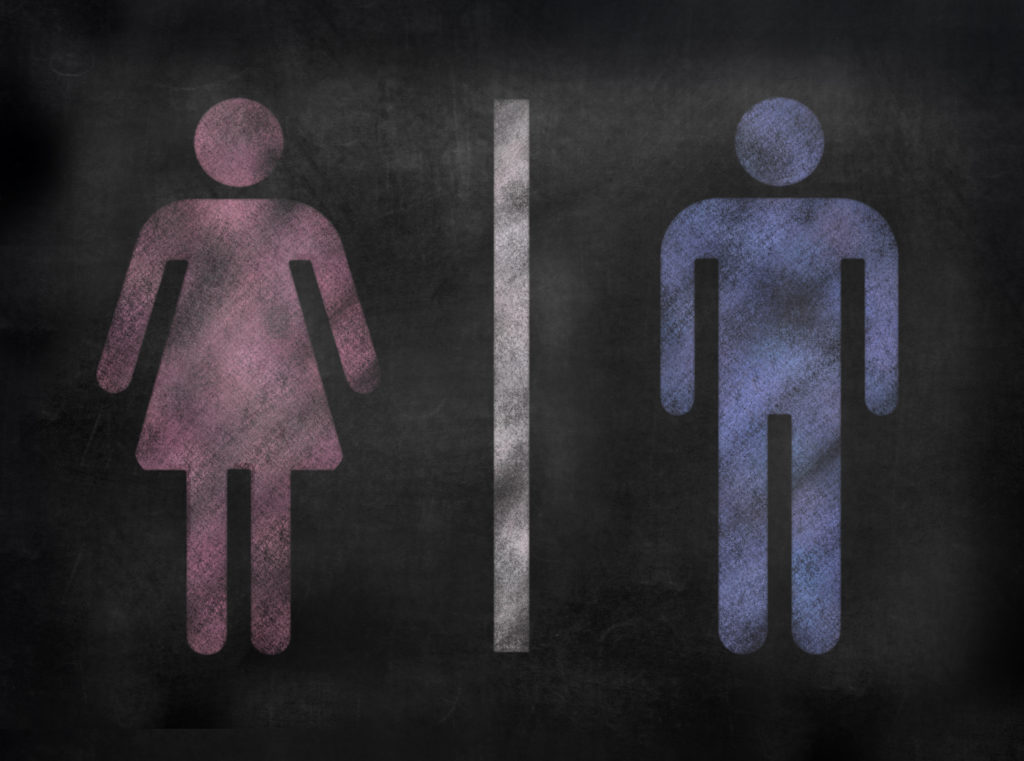The “price of citizenship” in a free society can never include our freedom of conscience. If we surrender that, then we have surrendered free society itself.
Throughout history, every person under every regime has had—in the most elemental sense—the freedom to form a unique set of beliefs and values. But, uniquely, citizens of the United States have long been guaranteed the fulfillment of that freedom. That is, we possess the freedom to live peacefully according to our beliefs and to follow the dictates of our conscience.
This freedom—codified by the First Amendment—is a pre-political right that rests in our dignity as human beings. But the cultural movement for “tolerance” and “inclusion” has reduced freedom of conscience to a lesser-than right, a token that exists subject to the decisions of judges and lawmakers.
In recent years, laws that provide special privileges to individuals based on their self-proclaimed gender identity or sexual preferences have emerged across the country. Commonly known as SOGI (Sexual Orientation and Gender Identity) laws, these legislative undertakings are typically fueled by activist groups and represent a subversive response to a nonexistent problem. Available data confirm there exists no significant social pattern or practice of unjust discrimination against these groups. This is not only because the vast majority of Americans already respect each other and are fair-minded, but also because anyone engaged in baseless discrimination faces the prospect of social and financial consequences brought on by public pressure and boycotts.
Start your day with Public Discourse
Sign up and get our daily essays sent straight to your inbox.SOGI laws, however, use the full force of the law to punish individuals who seek to live peacefully and to work in a way that is consistent with their consciences. Elaine Huguenin, Barronelle Stutzman, Jack Phillips, and Blaine Adamson are just a few of the small business owners who gladly serve all people without exception, but who also face legal punishment because they declined to participate in certain events or to create custom art that would have violated their consciences. In Elaine’s case, she politely declined a request to use her expressive photography skills to tell the story of a same-sex commitment ceremony. Her attempt to remain peacefully true to her faith’s teachings about marriage led to a seven-year court battle that culminated in a ruling by the New Mexico Supreme Court against her and her husband, Jon. One justice stated that the Huguenins “now are compelled by law to compromise the very religious beliefs that inspire their lives,” and added that this compulsion “is the price of citizenship.”
Barronelle Stutzman is a 72-year-old grandmother who faces the loss of her business, savings, and home for referring elsewhere a request by a long-time friend and customer that she participate in the celebration of his same-sex wedding by designing custom floral arrangements for it.
In Iowa and Massachusetts, not only religious citizens but even houses of worship are under attack. Churches currently face government-imposed mandates requiring them to open their restrooms to individuals based on their subjectively determined sex rather than biological reality.
Conditional Surrender Fails to Advance Religious Liberty
With these facts in mind, it is no surprise that in 2016 alone, legislatures in Arizona, Florida, Idaho, Indiana, Kansas, Nebraska, and nine other states rejected such freedom-crushing legislation. In fact, aside from the Utah SOGI enacted in 2015, it’s been five years since a new statewide SOGI law has taken effect. In recent years, citizens in multiple cities have actually voted to repeal such laws after witnessing their harmful effects. Given this backdrop, it is readily apparent that SOGI laws are neither inevitable nor desirable. It also is (or should be) abundantly clear that SOGI laws ought to be vigorously opposed by all those who value freedom for everyone.
But instead, some conservatives suggest that SOGIs are inevitable and may even be necessary to achieving any protections for religious freedom, given cultural trends. They propose a strategy of “compromise”—one that involves proactively drafting and advocating SOGI laws, which is what happened in Utah. The harm of adopting the SOGI law, they propose, can be mitigated by the insertion of “vigorous protections for religious freedom.”
This logic is flawed on several levels. First, in the past two years, more than seventy separate SOGI bills have failed because legislators are increasingly recognizing the real damage these laws pose to the privacy, dignity, and religious liberty of citizens. At the same time, 80 percent of Americans believe that individuals should enjoy religious liberty protections. It therefore seems that any failure in obtaining robust protection for freedom of religion and freedom of conscience—and to be sure, such failures are real—results not from a society united against such freedom, but from a failure to effectively communicate how SOGI laws curtail these freedoms. Thus, the solution lies not in abandoning the principle but in clearly and persuasively articulating it.
Second, not only do SOGI laws invite all of the harms described earlier in this article, but such proposals lack meaningful protections for religious freedom, much less protections that could even remotely be described as “vigorous.”
Take Utah, where its new law implicitly authorizes government punishment of licensed professionals such as counselors and lawyers. Or Indiana, where proposed SOGI laws SB 100 and SB 344 purported “to exempt certain limited categories of people and institutions—clergy, houses of worship, religious non-profits, and small businesses with no more than three employees (SB 100) or five employees (SB 344)” from their reach. These so-called protections for religious freedom simply reiterated the most basic of First Amendment protections for religious entities and the smallest of small businesses. Such a voluntary surrender of a fundamental freedom is hardly a model fit for replication. Even the blessed few who emerge with a shred of freedom intact are bound to recognize their tenuous hold on it, particularly when hiring an additional employee is all that stands between a person’s unalienable right and the government’s complete eradication of it.
Religious Exemptions Won’t Satisfy LGBT Activists
LGBT activists are no more satisfied by these proposals than are defenders of real diversity, freedom, and conscience. When Indiana introduced legislation this year similar to the Utah SOGI, Lambda Legal’s law and policy project director, Jennifer Pizer, described the bill as “a wolf in sheep’s clothing,” and argued that it “aims to guarantee the right . . . to discriminate” and provides “lesser protections for LGBT people.” The Human Rights Campaign called the Indiana legislation “deeply flawed” and “dangerous.” In Idaho, the Human Rights Campaign and others opposed efforts to advance a SOGI proposal “in solidarity with our partners at the ACLU, Pride Foundation, Planned Parenthood, ADD the Words, The Center and many others.” And in Michigan, Progress Michigan stated that its Utah-style proposal “is endorsing the use of religion to discriminate, which obstructs the LGBT community in their struggle for equal rights.”
It is naïve to argue that such laws would placate LGBT advocates any more than domestic partnerships or civil unions satisfied advocates of same-sex marriage. Such Utah-style legislation cannot offer robust protections for First Amendment freedoms while also securing the goals of HRC, the ACLU, and other similar advocacy groups. Indeed, following the passage of Utah’s bill, any celebratory cheers at the “success” of narrow (and insufficient) protections for religious freedom and freedom of conscience were drowned out by the clamor of LGBT activists calling for the elimination of such protections in future bills in other states, including protections so basic as allowing religious institutions to adopt and enforce policies reflecting the core tenets of their faith on matters pertaining to marriage and human sexuality. In fact, less than a year after Utah’s SOGI was signed by the governor, legislation was introduced that would apply the state SOGI law to all public accommodations—stripping away one of the last vestiges of liberty left untouched by the law. After all, as activists routinely argue, if LGBT individuals are a defined class warranting special protections, why should any exceptions be allowed?
Analogies with Incremental Pro-Life Strategies Fail
Still others have sought to justify a policy of conditional surrender by alluding to the strategic decisions of the pro-life movement. This argument is flawed, for at least two reasons. As an initial matter, the movement to pass laws that truly protect freedom of conscience mimics—rather than ignores—the earliest successes of the pro-life movement. To paraphrase Ryan Anderson’s analysis of Roe v. Wade, Obergefell created the right to a same-sex wedding, but also the right not to perform a same-sex wedding or participate in a same-sex wedding. Obergefell does not eliminate our nation’s history of recognizing and protecting freedom of religion and freedom of conscience. We should not voluntarily abandon these foundational freedoms in imprudent moments of panic or defeatism. Instead, we should focus our efforts on robust legislation that solidifies rather than bargains away freedom.
The argument regarding the pro-life movement also fails to recognize key contextual distinctions. In the years following Roe v. Wade, the pro-life movement found itself in a position of near-total defeat on the issue of abortion restrictions. Pro-life advocates were not seeking to minimize potential losses; they were seeking to take back ground that had already been lost. Accordingly, any incremental step forward was a victory. No one suggested adopting a bill that legalized abortion in all nine months of pregnancy while simultaneously clarifying an already existent constitutional protection for a small, select group of individuals.
In the current cultural standoff, proponents of religious freedom and freedom of conscience simultaneously confront opportunities for victory and defeat. We can either choose to enter the arena and strive valiantly for victory, or we can join “those cold and timid souls who know neither victory nor defeat,” choosing to negotiate the terms of our own surrender. Now is not the time to partner with proponents of SOGIs in hopes of catching a few crumbs of liberty that fall from the table. Freedom of conscience is not a token to be surrendered as the price of citizenship in a free society; it is the mark of citizenship and the fruit of a free society.












